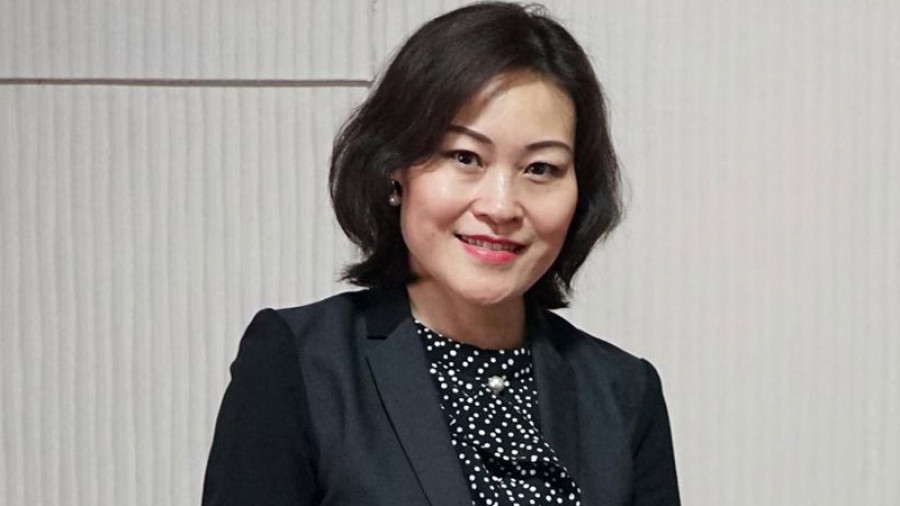National
China does not export its ideology, says Chinese ambassador in response to criticism
A two-day training programme in Kathmandu led by the Communist Party of China on Xi Jinping Thought had drawn criticism from various quarters.
Anil Giri
In the wake of the recent controversy over the training programme on Xi Jinping Thought conducted by the Communist Party of China, Hou Yanqi, the usually taciturn Chinese Ambassador to Nepal, has said that China has never sought to export its ideology to any country.
Concerns were raised in Kathmandu after the ruling Nepali Communist Party hosted a two-day ideological training session with a team from the Communist Party of China, signing a six-point memorandum at the end.
“I noticed there are some different opinions and views on these kinds of interactions in the newspapers,” Hou said at a programme on Thursday. “I want to emphasise two points here. Firstly, China will never seek a kind of output to another country. This will never change. We are consistent in our policy not to interfere in other countries’ domestic affairs.”
Hou was speaking at an event organised by the China Study Centre entitled, ‘Xi Jinping Thought: Building a community with a shared future of mankind.’ At the programme, two Chinese scholars and Nepali academicians and diplomats held a day-long discussion on Xi Jinping Thought.
“Xi-thought has already been internationalised and it is a very hot topic,” she said, “especially in developing countries, because Xi-thought promotes new ideas. We would like to share our lessons with the rest of the world. We want to share and exchange such ideas, experiences and developments.”
With a visit by Chinese President Xi Jinping planned for October, Chinese scholars and party members have been arriving in Kathmandu to hold a series of discussions on Xi Jinping Thought, raising concerns from the primary opposition Nepali Congress and a section of the ruling party.
A senior ruling party leader told the Post that the ruling party had requested that the CPC impart training to the Nepal Communist Party on how to maintain discipline as the CPC had managed to place over 90 million committed cadres under the rule of discipline.
According to the Congress, the six-point memorandum signed between the Nepal Communist Party and the Communist Party of China is unacceptable and the presence of Prime Minister KP Sharma Oli at the signing is objectionable.
“We do not have an objection to the presence of Madhav Nepal and Pushpa Kamal Dahal. Our objection is to the presence of the prime minister,” Nepali Congress leader Arjun Narsingh KC told the Post. “If the prime minister stands while signing an agreement between two parties, it looks like an agreement between the two countries. Such a move will definitely affect our core values of impartiality and non-alignment in foreign policy.”
Read: A blueprint for consolidating power: China exports Xi Jinping Thought to Nepal
In the six-point MoU, the two parties have agreed to exchange high-level visits, share political experience, increase the number of visits by intellectuals, youth leaders, civil institutions and media, and host an annual programme based on ideology and principles, among others.
Earlier, Prime Minister Oli had also participated in an interaction organised by the Communist Party of China’s school department in Beijing during his visit there last year.
On Thursday, while inaugurating the one-day seminar, Defence Minister and head of the party’s School Department Ishwar Pokhrel highlighted the positive aspects of Xi Jinping Thought and how Xi had successfully presented his ideology at various international forums, including the United Nations.
“Xi-thought is already internationalised. Whether at the United Nations, the Shanghai Cooperation Organisation or the China-Africa Forum, Xi-thought has received important space,” said Pokhrel.
The Nepali Congress, however, believes that China has started to export its ideology and is starting with Nepal, according to KC.
“All we want is a partnership in development with China,” said KC.




 8.43°C Kathmandu
8.43°C Kathmandu














